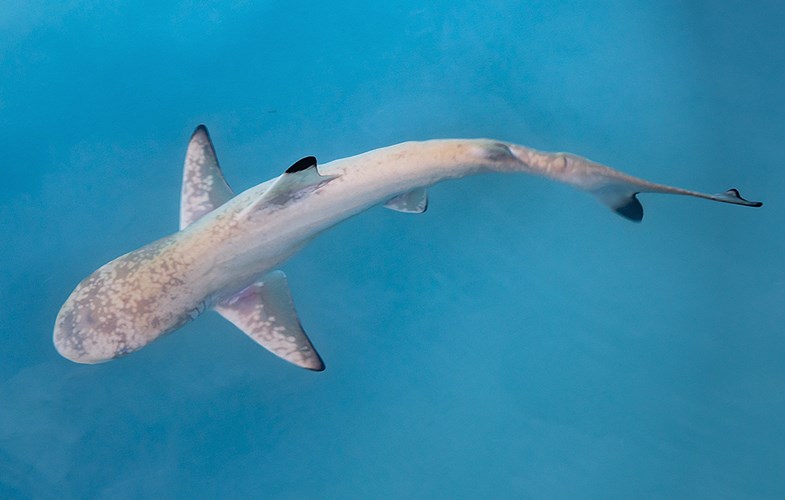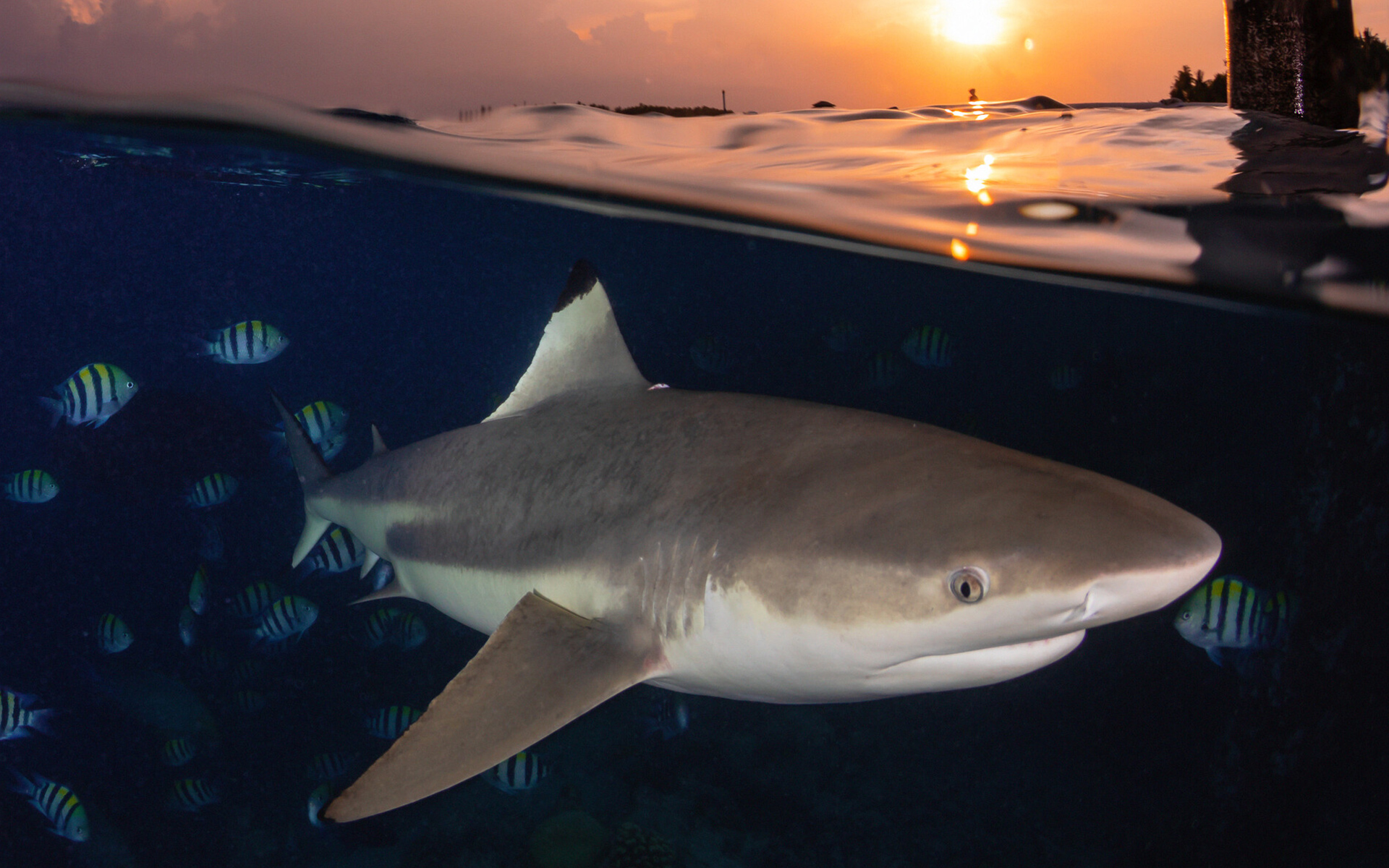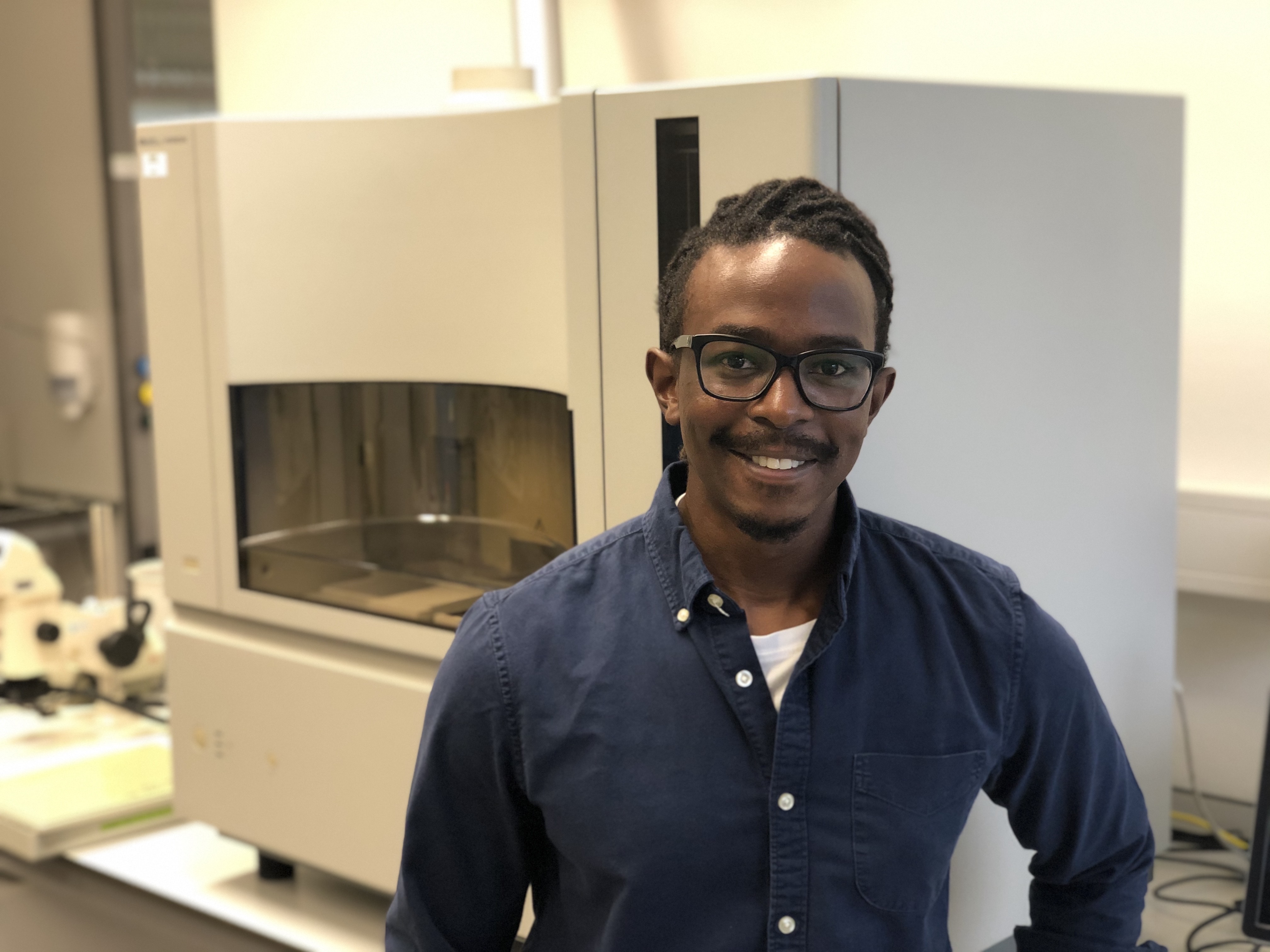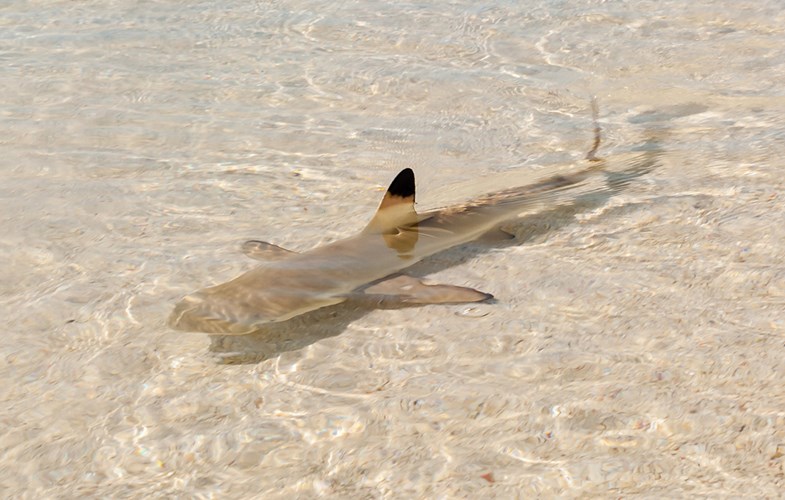

Research on pigment disorder in blacktip reef sharks and its impact on the local population
Leucism blacktip reefsharks
Project by Gibbs Kuguru as part of his PhD doctoral studies, which focuses on the causes of pigmentation disorders in blacktip reef sharks and the effects on the local population as well as the ecosystem.
Sharks have a unique colour pattern that serves as their camouflage. This type of camouflage is called "countershading". Sightings of blacktip reef sharks show that animals have lost this adaptability - their camouflage. These sharks have a genetic mutation called leucism. As a result of the pigment disorder, the sharks' skin no longer has its specific camouflage, but is mostly spotted grey and white.
Sharkproject has been supporting the research project "Inbreeding and the Unexpected Presence of Leucism in Caracharhinus melanopterus" and the PhD thesis of Gibbs Kuguru, PhD student at Wageningen University & Research, since 2020. What are the consequences of lack of conservation, overfishing and climate change on nature, and what does leucism in blacktip reef sharks ultimately have to do with this in turn? And why is it so important to maintain healthy shark populations with their unique adaptability?
The causes of leucism and its effects on local shark populations and reef biodiversity are being studied in Baa Atoll (Maldives). The scientific field of "Conservation Genomics" provides the basis for this research. Here, methods from genetics and computer science are applied. The data obtained in this way is intended to help preserve the biological diversity of sharks.
Location
Fari Islands, The Ritz-Carlton Maldives, North Male Atoll
Kihaa Island, Baa Atoll, Maldives
Duration
The project is initially planned for four years. Depending on the progress and results, the period may be extended.
There has already been an interruption due to Covid 19-related travel restrictions.
At least twice a year, Gibbs Kuguru is in the Maldives with expert and energetic support for the field research.
From summer 2023, the DNA samples will be sequenced and analyzed.

© Marc Zaalberg
Scientist
Gibbs Kuguru, PhD Candidate, Wageningen University & Research, The Netherlands

© Gibbs Kuguru
Equipment
Oxford Nanopore DNA Sequencer
Supporters and sponsors
- SHARKPROJECT Switzerland
- Ocean Dimensions
- The Ritz-Carlton Maldives
Involved partners
- Wageningen University & Research, Netherlands
- WWF Netherlands
Project History
August 2019: project launch
August 2019 to March 2020: Acquisition, project coordination, preliminary studies
April 2020 to September 2021: Laboratory work, test sample sequencing, further project coordination
October til December 2021: Field research part 1 on Kihaa Maldives (Kihaaddhufarus Island) and filming
March til May 2022: Field research part 2 on Kihaa Maldives (Kihaaddhufarus Island)
March and Arpil 2023: field resaerch part 3
since April 2023: sequencing and data analysis


